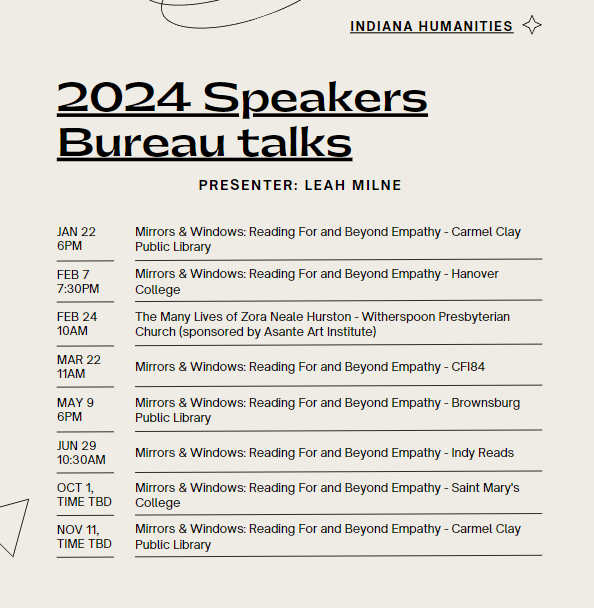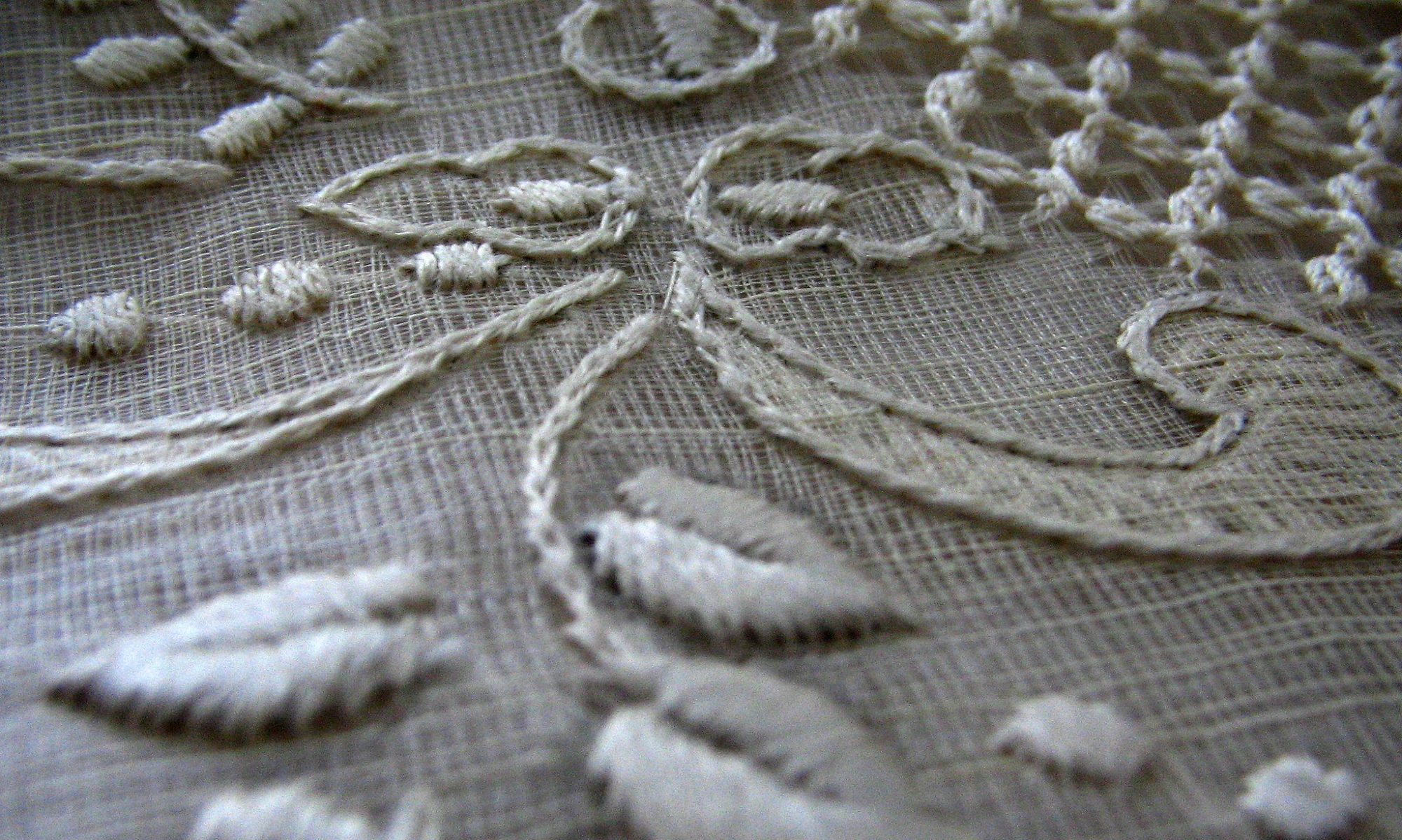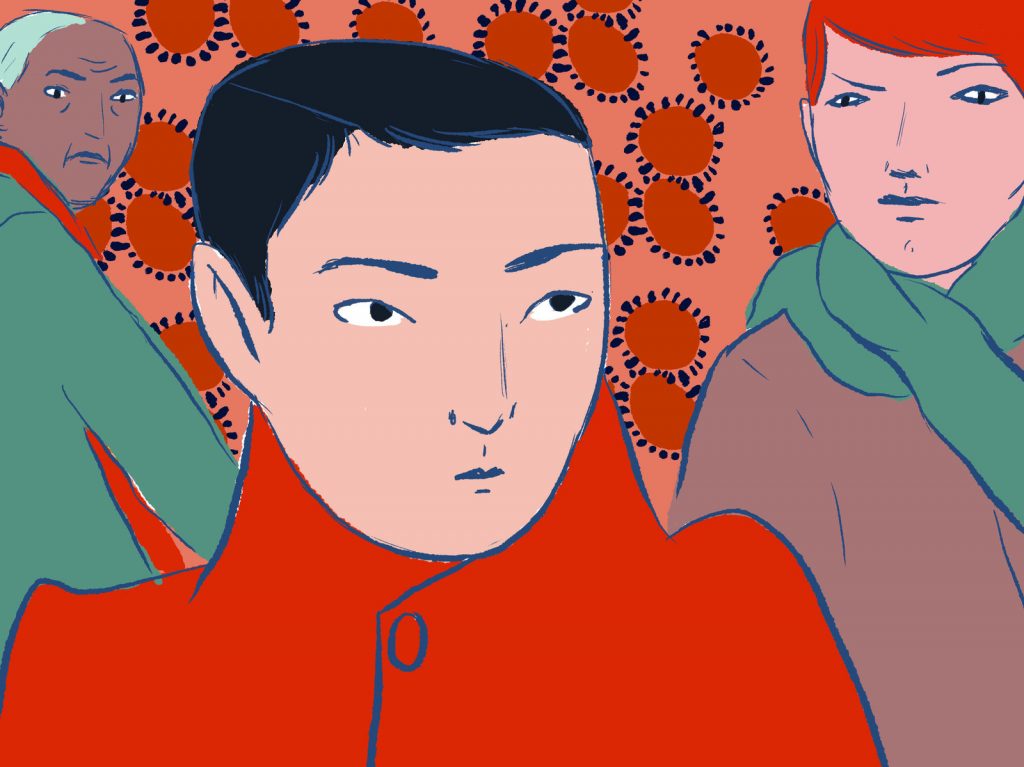I’m excited to serve on the speakers bureau as one of 15 people from across the state chosen by Indiana Humanities, our state humanities council. The 2023-2024 theme is Advancing Racial Equity.
I’ll be giving two major talks as part of the Speakers Bureau. One is entitled “Mirrors and Windows: Reading for & Beyond Empathy” and the other is “The Many Lives of Zora Neale Hurston.” The latter grew out of discussions and readings I did as part of my National Endowment of the Humanities (NEH) work, Hurston on the Horizon. You can find the descriptions of my two talks below:
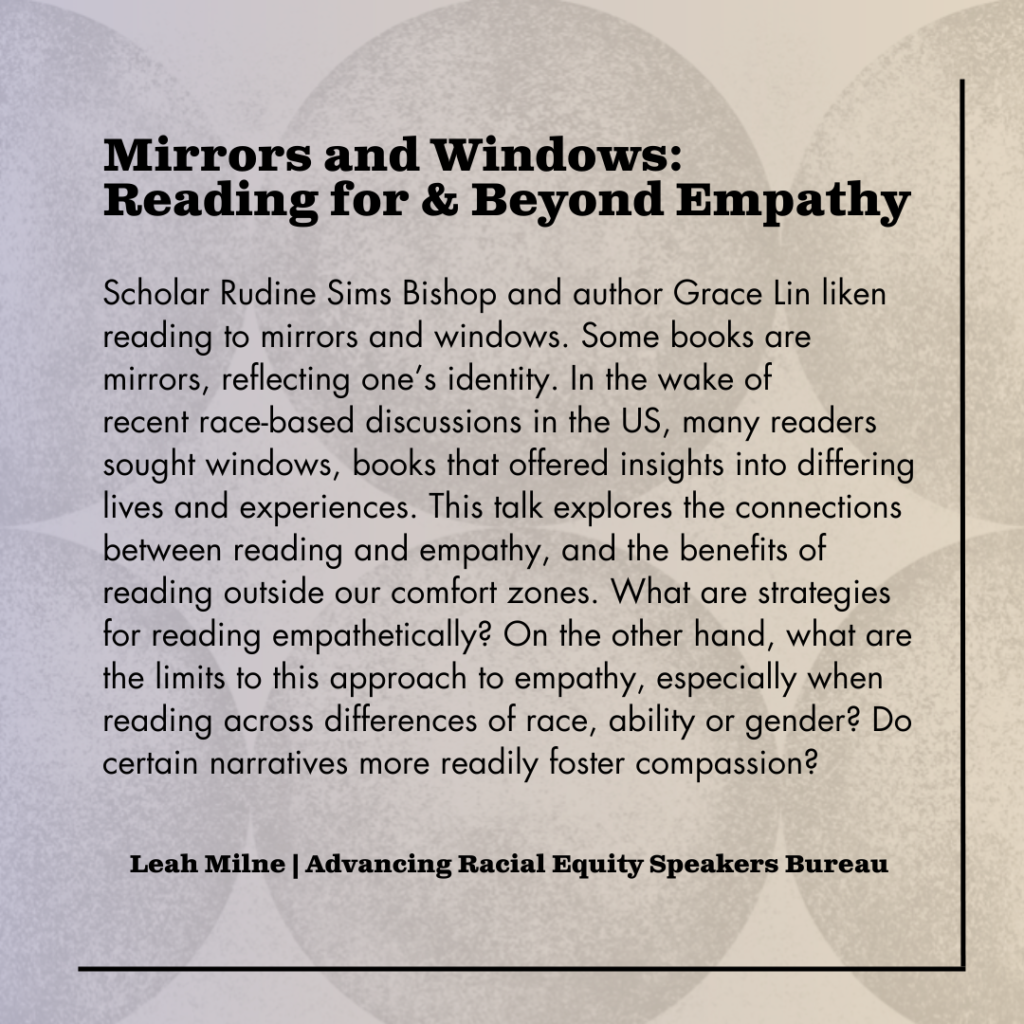
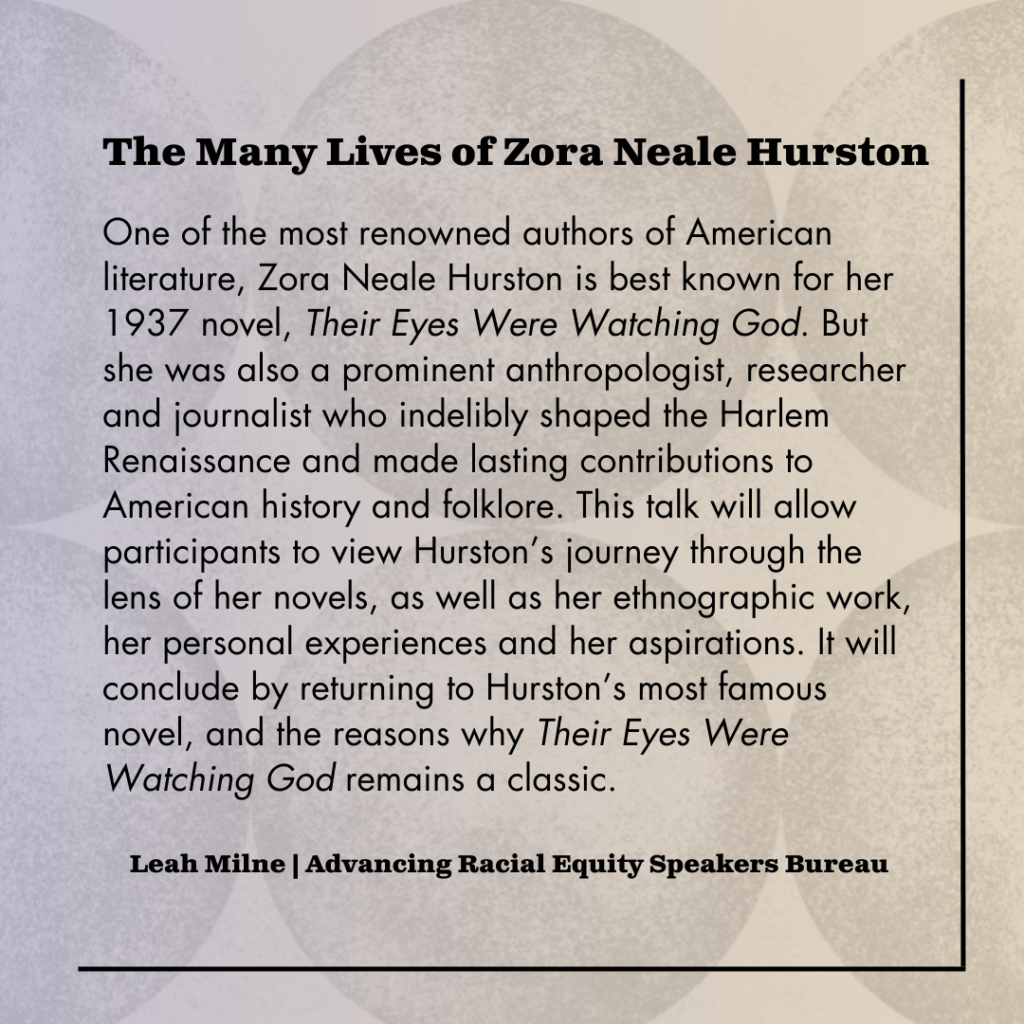
These and the descriptions of the other talks are available in the catalog linked here: https://indianahumanities.org/wp-content/uploads/2023/07/Racial-Equity-Speakers-Bureau-V4.pdf
I’ll be giving multiple versions of these talks in 2024 across the state, some through the Speakers Bureau, and others in connection to Indiana Humanities’ One State / One Story program, whose book selections this year are Tiya Miles’ All That She Carried: The Journey of Ashley’s Sack, a Black Family Keepsake and Ashley Bryan’s Freedom over Me. Ever since my work with the Op Ed Project, I’ve been thinking more about how to discuss complicated issues such as race and equity with the public. I’m looking forward to these public conversations about the humanities and literature.
As I told my institution recently, “The intercultural and interdisciplinary analyses that the humanities provide are needed now more than ever, especially when it comes to complicated, open-ended issues such as advancing equity. I’m honored to lead humanities-based discussions with the public on the important topics of racial equity, literature, and empathy. My talks are still being booked, but at this point, I know I’ll be hosted by at least eight different organizations across the state, which shows a clear need for us to continue having these vital conversations.”
